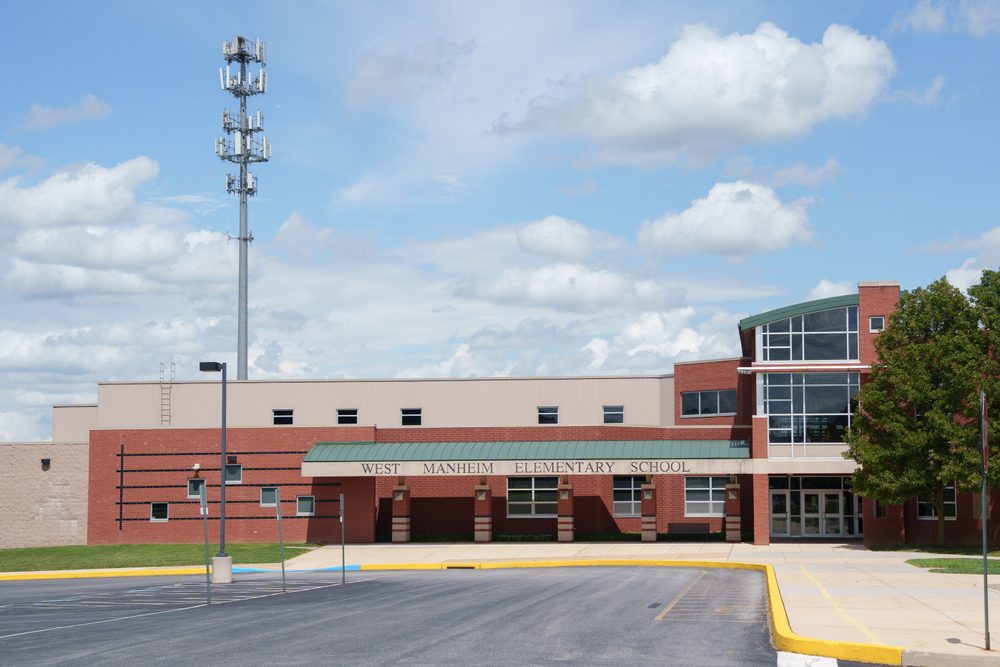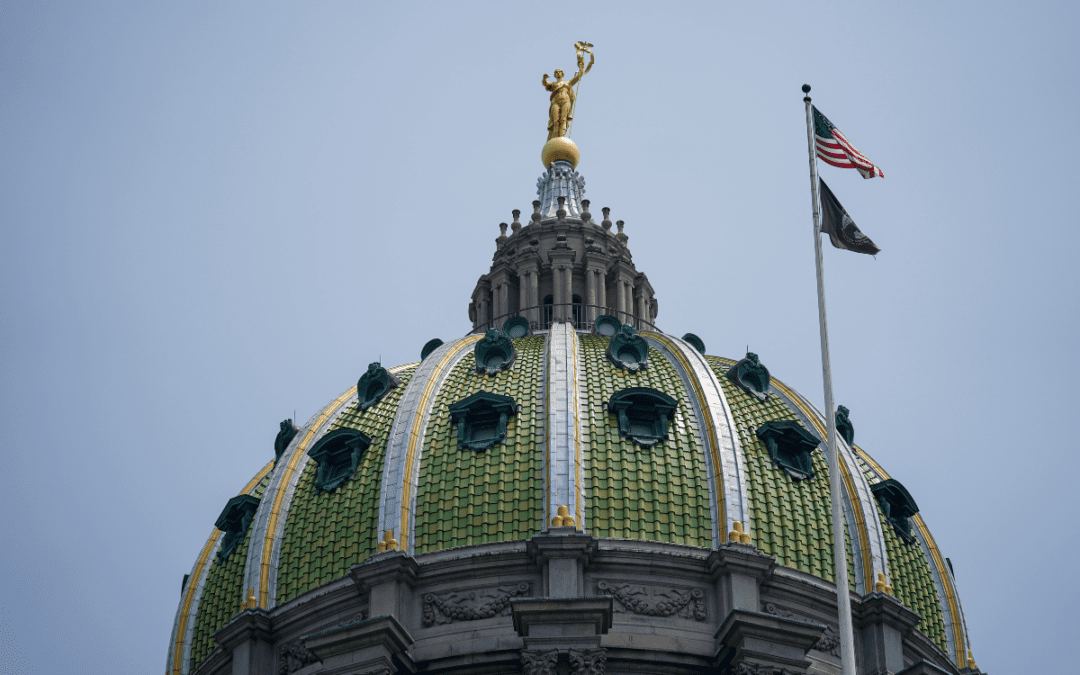
West Manheim Elementary school in Hanover. (Shutterstock)
Pennsylvania presents a rather contradictory mix of philosophies when it comes to the budget.
On the one hand, there is the uniformity clause in the Pennsylvania Constitution that states that “All taxes shall be uniform…” which means that we can’t have anything approaching a graduated income tax in the state, because, God forbid, that would discriminate against the rich.
The commonwealth, however, does have a mechanism that allows the legislature to discriminate against the poor. It is known by the ironic term “Hold Harmless”, and was introduced in a funding bill in 1992. The provision promised that each district would receive at least as much basic education funding as the year before, allowing for inflation.
Here is how “Hold Harmless” works. Imagine two school districts. Each has four students.
| A B C D | E F G H |
Each district gets $100 to teach those students.
One year later, however, two students from one school district leave to go to the other district.
| A B | C D E F G H |
Both districts would still get $100 (as per Hold Harmless), but the first district would have twice as much money to spend on each student, and the second district would struggle to make ends meet, due to having less money per student. In this way, it is the district, and not the student, that is held harmless. Many districts in the state with growing student populations, such as Philadelphia, Harrisburg, Allentown, York City, Pottstown, and Reading, have found themselves in this latter group.
So while Pennsylvania’s government prohibits us from discriminating against the rich, it has no qualms about discriminating against the poor.
But we are clawing our way back.
In 2023, the Commonwealth Court ruled Pennsylvania’s educational funding standards to be unconstitutional, and recommendations by the Basic Education Commission the following year outlined a multi-year process to rectify these unequal and inadequate funding laws. Last year’s budget made significant investments in correcting the damage caused in the past. This year, Governor Shapiro is proposing $526 million in spending to continue narrowing the adequacy and equity gap between fully funded and underfunded districts.
As expected, however, state Senate Republicans are balking at the cost of these increases. Senate Appropriations Chair Scott Martin’s response to the governor’s proposal is that “Gov. Shapiro’s budget fails to face reality, spending more than the state can reasonably afford…”
But what is truly unrealistic is the state Senate’s distaste for exploring new revenue sources. Here are just a few policies they’ve opposed:
- Taxing skill games;
- Taxing Marijuana upon legalization.
- Taxing the extraction of natural gas;
- Combined reporting to offset the revenue collection problems with the Delaware loophole; and of course,
- Amending the state constitution to abolish the uniformity clause, or to find other work-arounds.
Meanwhile, you can be a part of the solution. This link will allow you to automatically email your state House and Senate members in Harrisburg to let them know that you are in favor of full and fair educational funding in Pennsylvania and that every child in the commonwealth needs to be held harmless.

Nearly two months into stalemate, Shapiro says a budget is close; Really, this time
Shapiro said he’s open to Republican’s proposal to use public transportation trust fund money to shore up transit authorities, if it’s paired with...

Budget disagreements burst into the open at Pa. Capitol
The Senate passed a Republican-backed budget. But Gov. Shapiro said it’s ‘not a serious, long-term proposal.’ After a flurry of activity at the...

Shapiro says ‘the time to act is now’ on mass transit funding as potential service cuts loom
Autumn Fingerhood is a hospitality worker who lives in northeast Philadelphia and is a member of Unite Here Local 274. As a single mother working...

Pa. House holds a Sunday vote on transit funding as the consequences of a late budget loom
The move to advance a standalone transit funding bill is something of a pressure tactic on the part of House Democrats. The state House convened on...

Safety net programs are likely to be the first affected by a continued Pa. budget impasse
Advocates warn delayed state disbursements will curtail county mental health and substance abuse programs. If the state budget paralysis in...





